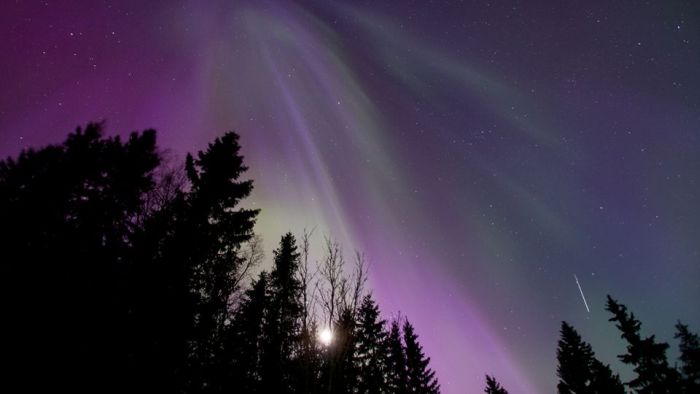|
|
Aurora, Amazing Northern Lights
|
Auroral events of historical significance
The auroras that resulted from the "great geomagnetic storm" on both 28 August and 2 September 1859 are thought the most spectacular in recent recorded history. Balfour Stewart, in a paper to the Royal Society on 21 November 1861, described both auroral events as documented by a self-recording magnetograph at the Kew Observatory and established the connection between the 2 September 1859 auroral storm and the Carrington-Hodgson flare event when he observed that "it is not impossible to suppose that in this case our luminary was taken in the act." The second auroral event, which occurred on 2 September 1859 as a result of the exceptionally intense Carrington-Hodgson white light solar flare on 1 September 1859 produced auroras so widespread and extraordinarily brilliant that they were seen and reported in published scientific measurements, ships' logs and newspapers throughout the United States, Europe, Japan and Australia. It was reported by the New York Times that in Boston on Friday 2 September 1859 the aurora was "so brilliant that at about one o'clock ordinary print could be read by the light". One o'clock Boston time on Friday 2 September, would have been 6:00 GMT and the self-recording magnetograph at the Kew Observatory was recording the geomagnetic storm, which was then one hour old, at its full intensity. Between 1859 and 1862, Elias Loomis published a series of nine papers on the Great Auroral Exhibition of 1859 in the American Journal of Science where he collected world wide reports of the auroral event. The aurora is thought to have been produced by one of the most intense coronal mass ejections in history, very near the maximum intensity that the Sun is thought to be capable of producing. It is also notable for the fact that it is the first time where the phenomena of auroral activity and electricity were unambiguously linked. This insight was made possible not only due to scientific magnetometer measurements of the era but also as a result of a significant portion of the 125,000 miles (201,000 km) of telegraph lines then in service being significantly disrupted for many hours throughout the storm. Some telegraph lines however seem to have been of the appropriate length and orientation to produce a sufficient geomagnetically induced current from the electromagnetic field to allow for continued communication with the telegraph operators' power supplies switched off. The following conversation occurred between two operators of the American Telegraph Line between Boston and Portland, Maine, on the night of 2 September 1859 and reported in the Boston Traveler:
Boston operator (to Portland operator): "Please cut off your battery (power source) entirely for fifteen minutes."
Portland operator: "Will do so. It is now disconnected."
|
|









